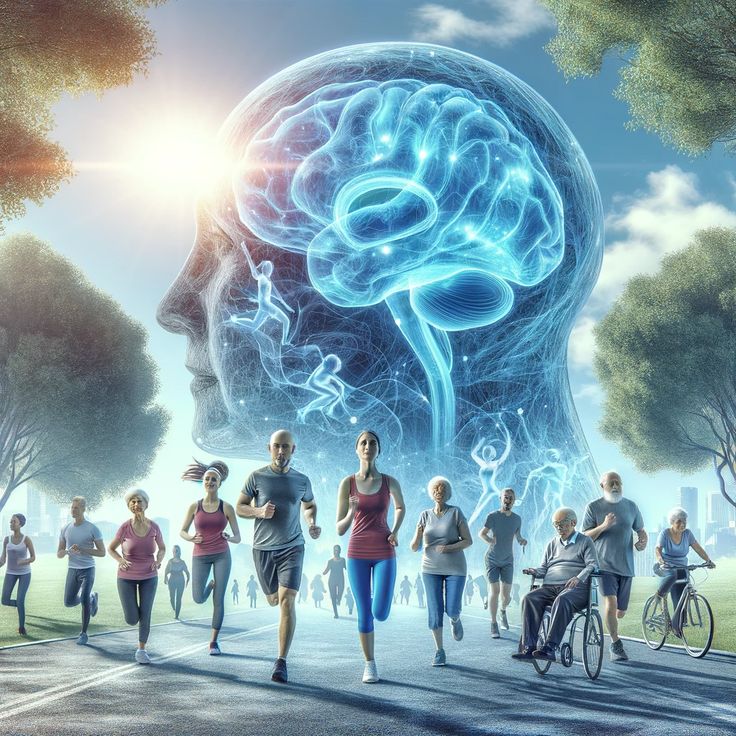
The Cognitive Benefits of Regular Aerobic Exercise: How Brisk Walking Boosts Memory and Learning
In today’s fast-paced world, maintaining cognitive function and preventing age-related decline has become an important focus for researchers, medical professionals, and individuals alike. One of the most effective and accessible ways to enhance brain health is through regular aerobic exercise, such as brisk walking. Research has shown that consistent aerobic activity not only improves physical health but also has a profound impact on cognitive function, particularly in enlarging the hippocampus—a brain region crucial for memory and learning. This article explores how aerobic exercise enhances memory, learning, and overall brain health, offering valuable insights into why incorporating movement into daily life is essential for mental acuity at all ages.
Understanding the Role of the Hippocampus
The hippocampus is a small, seahorse-shaped structure located in the brain’s medial temporal lobe. It plays a critical role in forming, organizing, and storing memories, as well as facilitating learning and spatial navigation. However, as individuals age, the hippocampus naturally shrinks, which can lead to memory loss and an increased risk of neurodegenerative conditions like Alzheimer’s disease. Fortunately, scientific studies have demonstrated that aerobic exercise, including brisk walking, can counteract this shrinkage by stimulating neurogenesis, the process of forming new neurons. This remarkable ability to support brain plasticity underscores the importance of exercise for cognitive longevity.
How Aerobic Exercise Enlarges the Hippocampus
One of the most compelling findings in neuroscience is the link between aerobic exercise and hippocampal growth. A landmark study conducted by the University of Pittsburgh and the University of Illinois found that older adults who engaged in regular aerobic exercise, such as brisk walking for 30–40 minutes several times a week, experienced a significant increase in hippocampal volume over a year. The study compared these results to a control group that engaged in stretching and toning exercises but saw no such hippocampal growth.
This effect is attributed to several physiological mechanisms:
- Increased Blood Flow – Aerobic exercise improves cardiovascular health, ensuring that the brain receives a steady supply of oxygen and nutrients. Increased blood flow to the hippocampus encourages neuronal growth and prevents atrophy.
- Boost in Neurotrophic Factors – Exercise stimulates the release of brain-derived neurotrophic factor (BDNF), a protein that supports the survival and differentiation of new neurons while protecting existing ones.
- Reduction in Inflammation and Stress – Chronic stress and inflammation contribute to cognitive decline. Exercise reduces levels of cortisol (a stress hormone) and promotes an anti-inflammatory environment in the brain, helping to maintain neuronal integrity.
The Impact of Aerobic Exercise on Memory and Learning
Since the hippocampus is crucial for memory formation, its enlargement through exercise translates into noticeable cognitive benefits. Here’s how aerobic activity enhances memory and learning:
- Improved Short-Term and Long-Term Memory – Regular exercise enhances both episodic (event-related) and semantic (fact-based) memory, allowing individuals to retain and recall information more efficiently.
- Enhanced Learning Capacity – Exercise improves the ability to absorb and process new information, making it easier to acquire new skills or knowledge.
- Better Problem-Solving and Decision-Making Skills – With improved cognitive flexibility, individuals can think more clearly, solve problems faster, and make better decisions.
- Increased Attention and Focus – Exercise increases dopamine and norepinephrine levels, neurotransmitters that play a role in attention regulation and concentration.
- Prevention of Cognitive Decline and Dementia – Consistent physical activity has been linked to a lower risk of developing neurodegenerative diseases such as Alzheimer’s and other forms of dementia.
Age-Related Cognitive Decline and Exercise as a Preventative Strategy
Aging naturally brings about a decline in cognitive abilities, but lifestyle choices significantly influence the rate and extent of this decline. Research shows that physically active individuals maintain sharper cognitive function into their later years compared to their sedentary counterparts. The benefits of aerobic exercise for older adults include:
- Slower Brain Aging – Exercise slows down the shrinkage of brain structures associated with memory and cognition, preserving their function longer.
- Lower Risk of Alzheimer’s Disease – Studies indicate that older adults who engage in aerobic activities have a reduced risk of developing Alzheimer’s, as exercise helps clear beta-amyloid plaques—one of the hallmarks of the disease.
- Improved Mood and Mental Health – Regular physical activity decreases the likelihood of depression and anxiety, both of which can exacerbate cognitive decline.

How Much and What Type of Exercise is Needed for Cognitive Benefits?
The good news is that one does not need to become a marathon runner to reap the brain-boosting benefits of exercise. Research suggests that even moderate-intensity activities like brisk walking, cycling, or swimming can significantly enhance cognitive function. The recommended guidelines for optimal brain health include:
- Frequency: At least 150 minutes of moderate-intensity aerobic exercise per week (e.g., 30 minutes per day, five times a week).
- Intensity: Exercise should be vigorous enough to raise heart rate and breathing but not so strenuous that it becomes exhausting.
- Variety: A combination of aerobic and resistance training can yield the best results, as strength training also contributes to cognitive resilience.
Additional Lifestyle Factors That Complement Exercise
While aerobic exercise is a powerful tool for brain health, other lifestyle choices can further enhance cognitive function and prevent decline:
- Healthy Diet – Consuming a balanced diet rich in antioxidants, omega-3 fatty acids, and vitamins (such as the Mediterranean diet) supports brain health.
- Adequate Sleep – Quality sleep is crucial for memory consolidation and overall cognitive performance.
- Mental Stimulation – Engaging in challenging activities like puzzles, reading, or learning new skills helps maintain neural connections.
- Social Engagement – Maintaining strong social ties and participating in community activities can enhance cognitive longevity.
- Stress Management – Practicing mindfulness, meditation, or deep breathing exercises can reduce chronic stress, which negatively impacts brain function.


